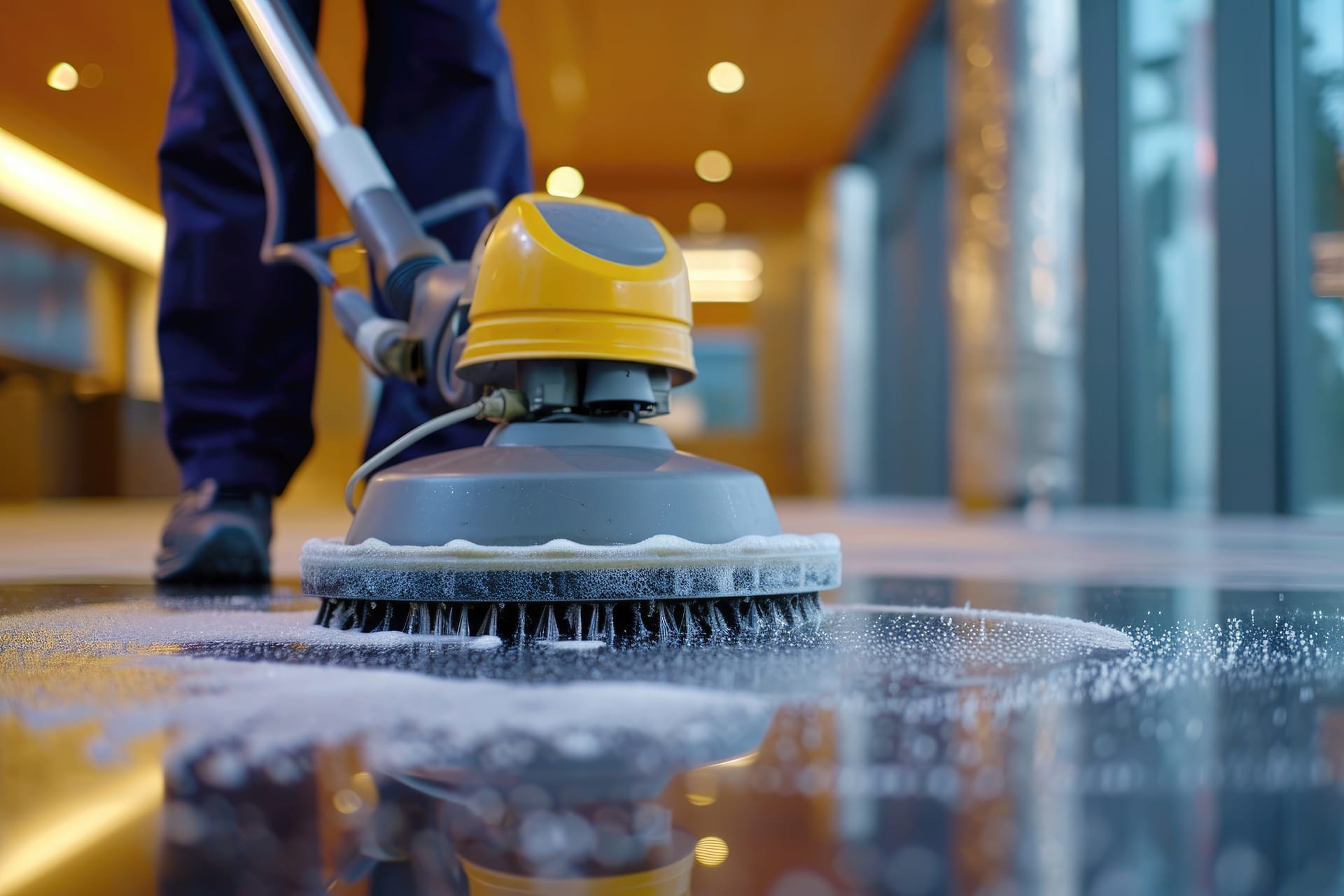
Maintaining cleanliness in a commercial space isn’t just about appearance—it’s about creating a safe, productive, and welcoming environment for employees, clients, and customers. Regular cleaning prevents the spread of germs, boosts morale, supports workplace safety, and keeps spaces compliant with industry standards. Here’s a checklist of the top ten cleaning tasks that every commercial space should prioritize, whether it’s an office, a retail shop, or an industrial facility.
All frequently touched surfaces—like door handles, elevator buttons, light switches, and countertops—must be disinfected daily. In high-traffic spaces, these surfaces accumulate bacteria and viruses quickly, increasing the risk of spreading illnesses. A commercial-grade disinfectant should be used on these surfaces, especially in high-traffic areas such as reception areas, break rooms, and public restrooms.
Floors endure heavy foot traffic in commercial spaces and can easily accumulate dirt, debris, and scuff marks. Regular floor cleaning, including sweeping, mopping, and vacuuming, is essential. For spaces with specific flooring materials, like marble or tile, specialized maintenance should be incorporated. In industrial settings, degreasing floors may be necessary to maintain slip resistance and prevent safety hazards.
Carpets and upholstered furniture can harbor dust, allergens, and bacteria. These should be professionally cleaned on a regular basis to extend their lifespan and improve indoor air quality. Commercial carpets should be deep-cleaned at least once every six months, while upholstery in high-traffic areas should be addressed quarterly to prevent the buildup of dust and dirt.
Clean windows and glass surfaces enhance a building’s aesthetics and maximize natural light. For offices, retail spaces, and even warehouses, window and glass cleaning should be scheduled at least monthly. This includes both interior and exterior windows, glass doors, and partitions. Clean glass creates a polished, welcoming look and prevents grime from blocking valuable sunlight.
Dust and debris can easily accumulate in air ducts and ventilation systems, reducing air quality and impacting HVAC efficiency. Air ducts should be cleaned at least once a year to prevent mold, allergens, and pollutants from circulating. In addition, regularly changing HVAC filters every three months, or more frequently in high-dust environments, keeps the air fresh and supports a healthier workspace.
Restrooms require meticulous daily cleaning due to their heavy use and the health risks associated with inadequate sanitation. Cleaning protocols should include disinfecting toilets, sinks, counters, and floors, as well as restocking essential supplies like soap, toilet paper, and paper towels. A regular deep clean using hospital-grade disinfectants is recommended for a hygienic environment.
Waste bins should be emptied daily in all common areas to prevent odors and keep spaces tidy. Recycling bins should also be monitored and emptied regularly to encourage eco-friendly practices. In industrial spaces, this may also include properly disposing of hazardous waste. Implementing a comprehensive waste management system supports both cleanliness and sustainability in the workplace.
Break rooms and kitchens need consistent cleaning to prevent cross-contamination and maintain food safety standards. Countertops, tables, microwaves, coffee machines, and refrigerators should be wiped down daily, with floors mopped as needed. It’s also a good idea to schedule a weekly or biweekly deep clean to address appliances, cabinetry, and any other hard-to-reach areas that might harbor germs.
In industrial environments, equipment and machinery cleaning is critical for both safety and productivity. Dust and debris buildup can affect machinery efficiency and increase the risk of accidents. Equipment should be cleaned based on a set schedule tailored to its usage, and operators should be trained on cleaning protocols to avoid damage. This task ensures operational reliability and prolongs machinery life.
Pests are a nuisance and a health hazard, especially in food-handling areas and spaces with high foot traffic. Regular pest control inspections can prevent infestations and ensure compliance with health regulations. Preventive measures—such as sealing cracks, securing food storage, and cleaning crumbs or spills promptly—can keep rodents, insects, and other pests at bay.
A comprehensive cleaning strategy is essential for any commercial space, helping to create a safer, healthier, and more inviting environment. By following this checklist, business owners and facility managers can ensure that their spaces remain functional, appealing, and compliant with health and safety standards.
Copyright © 2024 NYC Cleaning